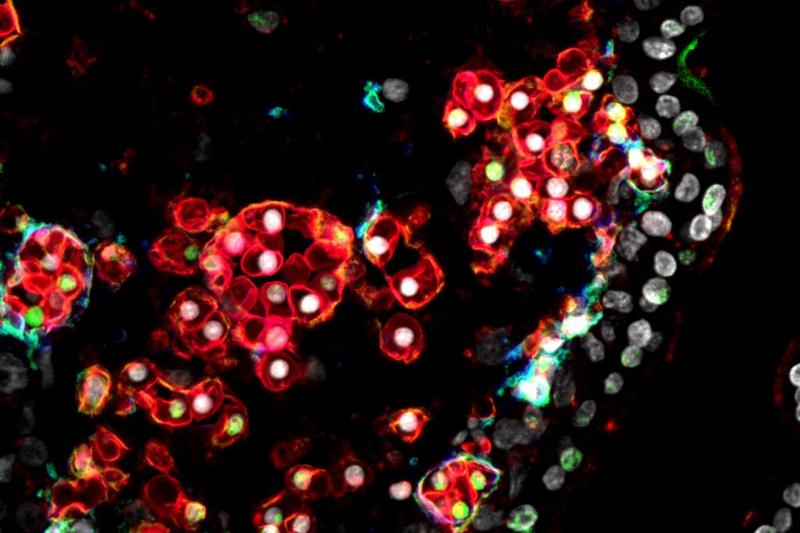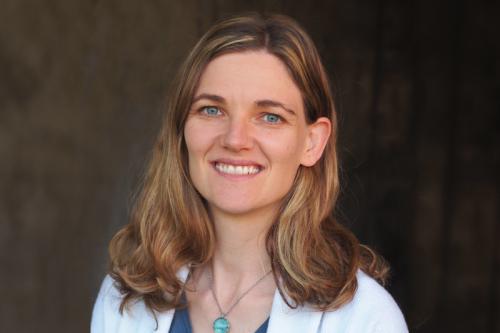
Keriann Backus, Ph.D.
- Assistant Professor, Biological Chemistry
- Assistant Professor, Chemistry and Biochemistry

Keriann Backus, Ph.D., is a chemical biologist who develops and applies advanced techniques to characterize protein functions and interactions, with the ultimate goal of identifying new therapeutic targets for various diseases.
Backus has dedicated the past two decades to synthesizing and applying new chemical probes to manipulate and study biological systems. Her research focuses on developing and utilizing mass spectrometry-based chemoproteomic methods to characterize how oxidative stress, proteolysis and genetic variation impact protein function in the context of cellular activation and differentiation.
These methods combine technologies from disciplines such as chemical biology, analytical chemistry, biochemistry and drug development. Backus’ efforts could lay the foundation for discovery of proteoform-directed therapies.
During her doctoral research, Backus synthesized and characterized the first small-molecule chemical probes that selectively label Mycobacterium tuberculosis, with the goal of improving diagnosis and treatment monitoring. Her postdoctoral work expanded the scope of the ligandable, or small molecule targetable, proteome by developing chemoproteomic platforms for covalent fragment-based screening across the proteome.
A major challenge Backus is addressing is the druggability gap. With only about 3% of the human genome targeted by current FDA-approved drugs, her goal is to develop new methods to make more of the genome accessible for drug targeting. To this end, she has already made important discoveries in the identification of functional, disease-linked and druggable cysteines — a type of amino acid that is a building block of proteins.
Research Projects
- Developing advanced methods to quickly analyze large numbers of proteins and other molecules in cells to identify functional genetic variants and sites where proteins are altered by oxidative stress
- Identifying potential weaknesses in blood cancer cells that could be targeted by new therapies
- Defining how post-translational modifications, or chemical changes after a protein is created, affect immune cell function
- Closing the druggability gap by enhancing methods to study cysteine — a key protein building block — and developing chemicals for more effective targeting
-
Post-doctoral Fellowship
- Chemical Biology, The Scripps Research Institute, 2017
Degree
- Ph.D., Chemical Biology, University of Oxford, United Kingdom, 2012
-